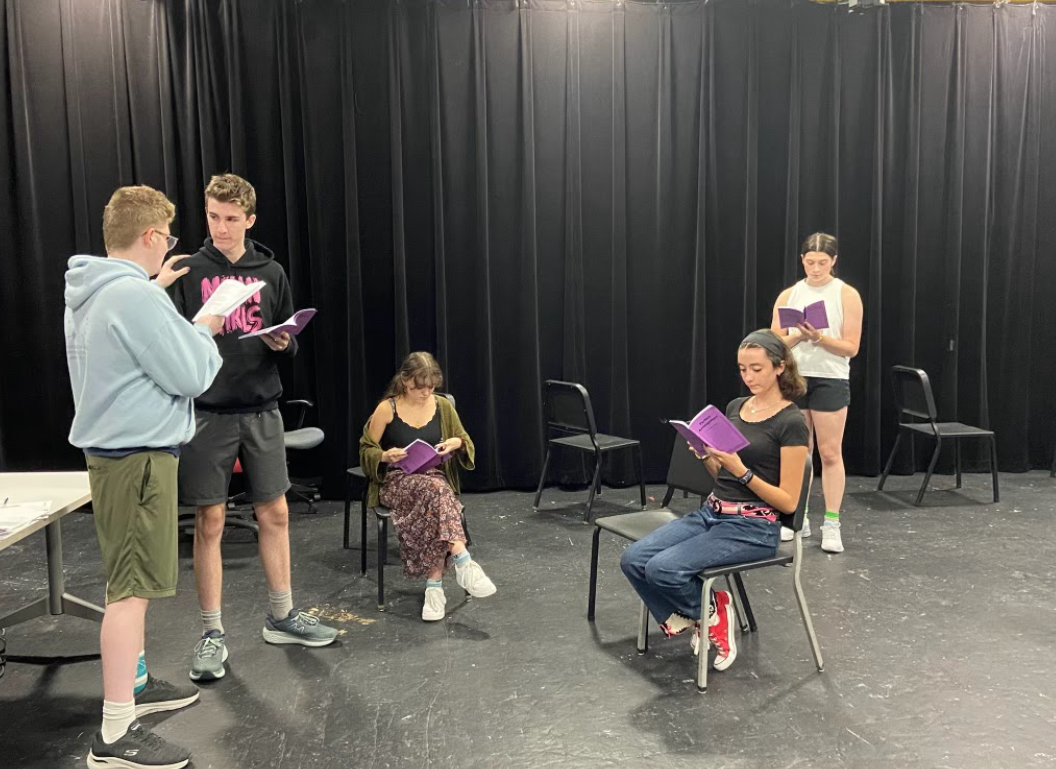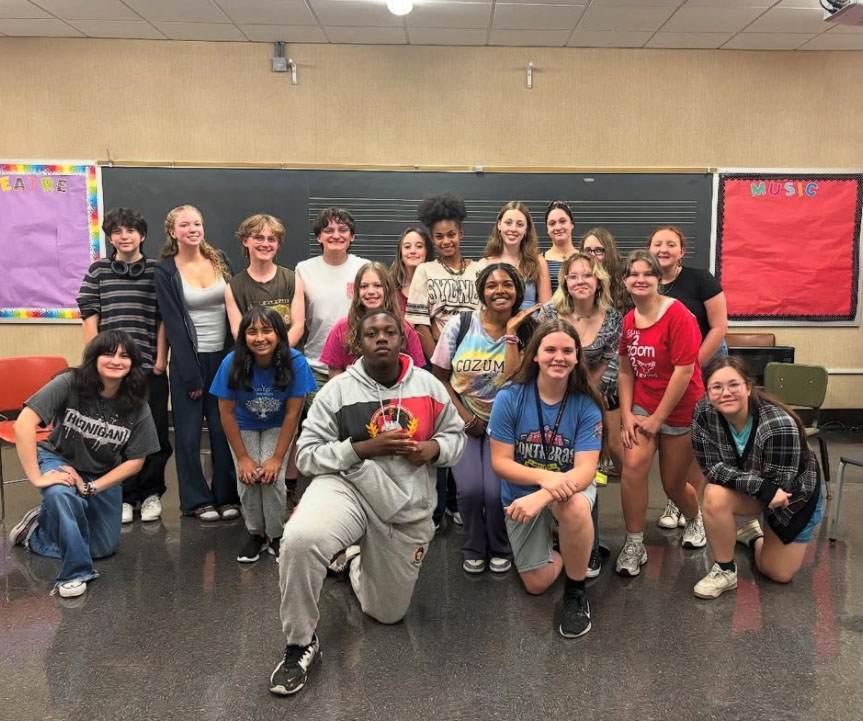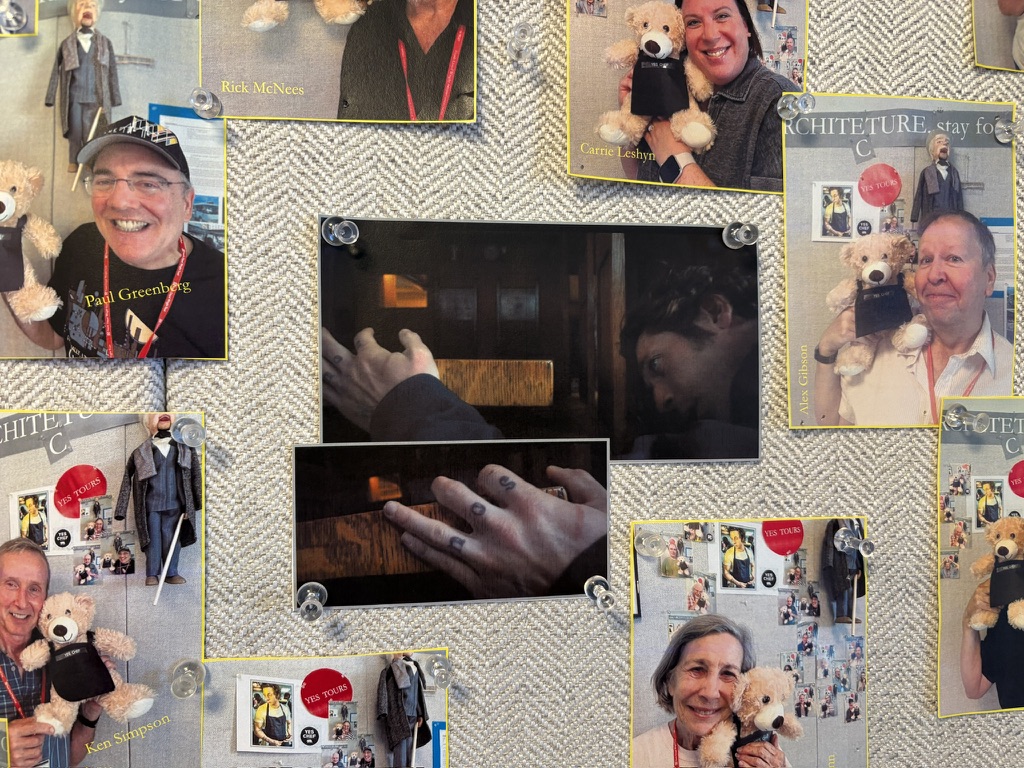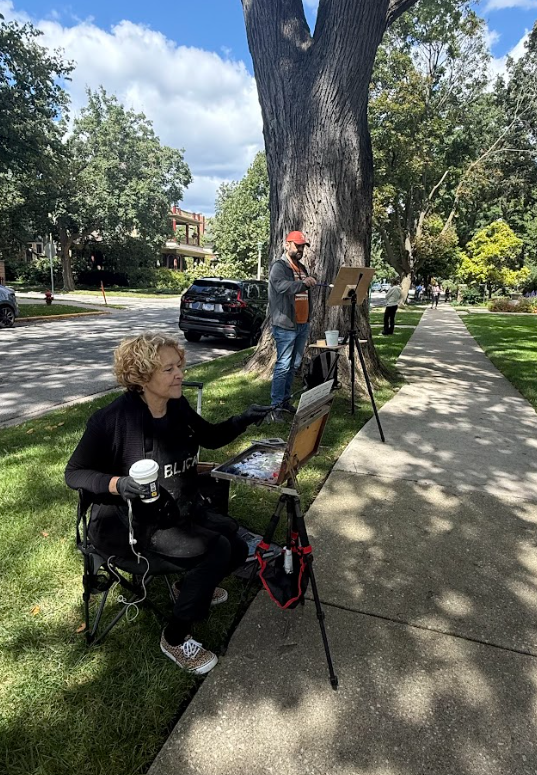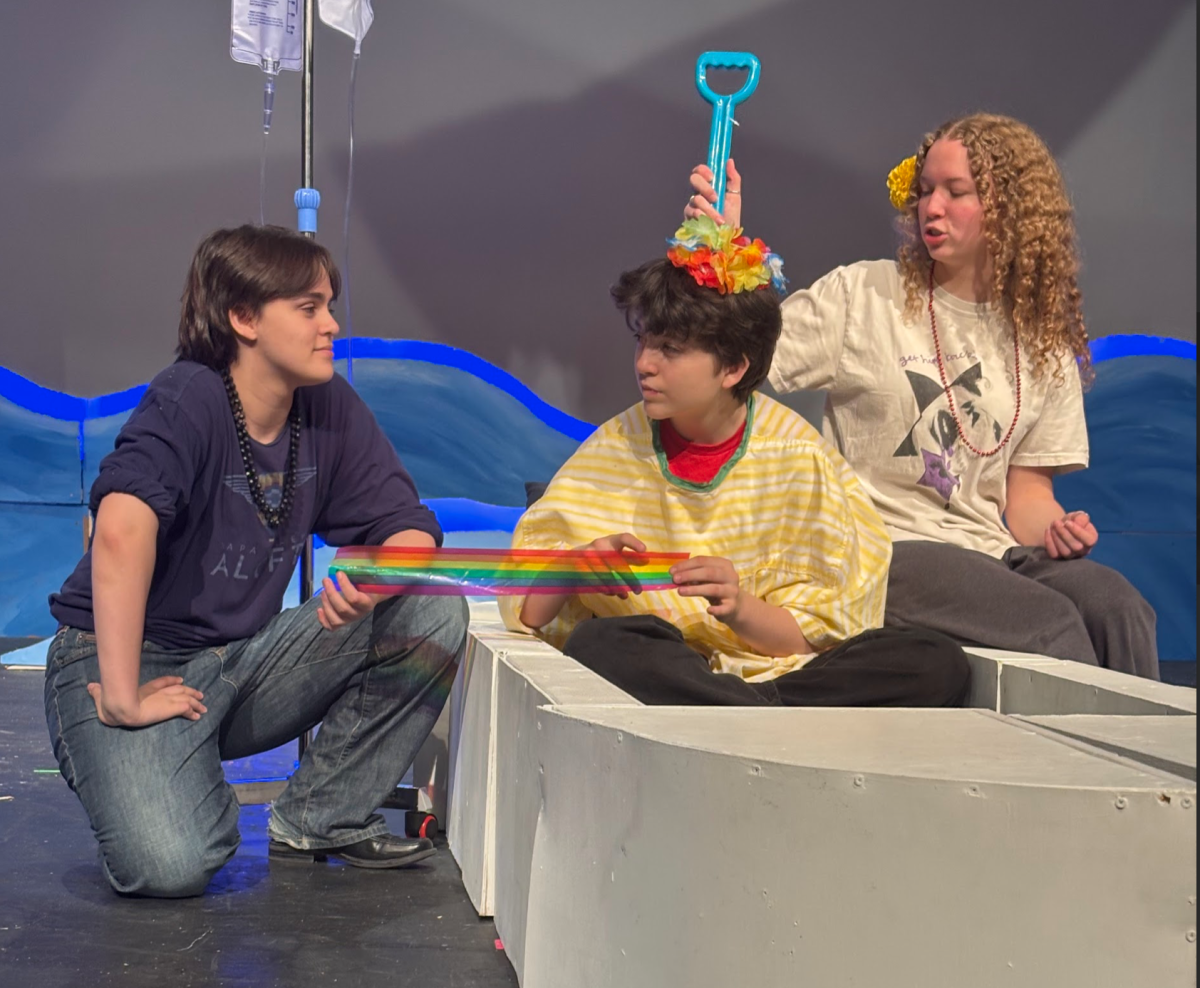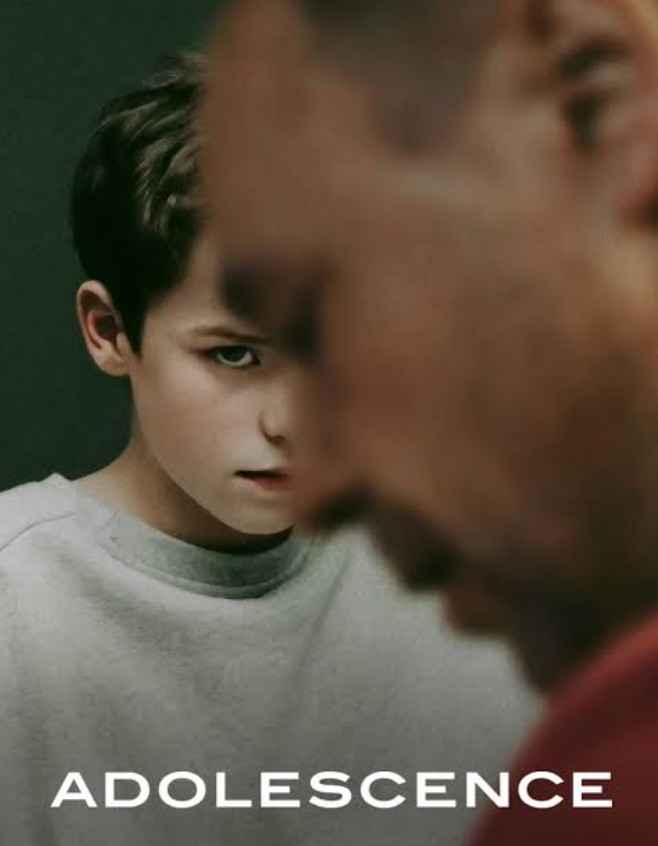The play “Perfect Arrangement,” written by Topher Payne and directed by senior Rowan Neville, went up Sept. 17 through 19 in Studio 200. The story, about the challenges queer people had to face in 1950s America, explores the impact of homophobia on the four protagonists–blending comedy with the serious subject matter.
“Perfect Arrangement” was Neville’s first experience as student director. However, he has acted and worked on other theatrical projects at Oak Park and River Forest High School, including but not limited to: “Cinderella,” “Complete Works of William Shakespeare” and “The Yellow Boat.”
Directing a play presented new challenges and opportunities for Neville. “When you are working on a creative thing, especially like as closely as you do directing something, that’s your baby–which is weird, and sounds weird, but it does very much feel like that,” he said.
“Perfect Arrangement” is a window to the world during the era of the Red Scare, when fear of communist infiltration terrified American citizens, and Sen. Joseph McCarthy of Wisconsin tried to root out communists in public hearings.
The 1950s was a time of suspicion and paranoia. People not considered straight were under particular suspicion, Neville said. “There was the belief that if you had some sort of quote unquote ‘character failing’ such as homosexuality, you were more susceptible to manipulation.”
The play focuses on two couples who are in, according to Neville, “bearded marriages.” In order to protect their hidden same-sex relationships, maintain their lifestyles and not be targeted, the four main protagonists form a facade that they were married to the opposite gender and therefore were straight.
“We go through every type of emotion you think you can fit in a play,” Neville said, though comedy and drama are central themes. The characters get into petty arguments while sharing their perspectives, often with a teasing or deadpan attitude. The script conveys the complexity of the main characters forced to live a lie.
Even the smaller roles make an impact on the mood throughout the play, according to Assistant Director Lilette Teclaw, a junior. “There’s some side characters who aren’t as rounded, and serve as just kind of obstacles or antagonists, but they’re still fun to watch,” she said.
While the show is comedic, it also conveys how unfortunate the main characters’ situation is. As the play goes on, the tone shifts from a metaphorical dance of humor to a darker mood. “The ending is very poignant,” said Ixtla Arceó-Witzl, the faculty sponsor for the production.
Playing characters with complex perspectives and personalities posed challenges for the actors.
“It’s really hard to get into the mindspace of someone,” said junior actor William O’Connell, adding, of his character, “He just does not like anything about what’s going on.”
“I think it’s hard to shift from playing a character who is pretending to be someone they’re not to trying to display that same character as their true self,” said sophomore actress Ainsley Bassett.
The theme of society not allowing people to claim their true identities without negative consequences echoes today, according to Bassett.
“I think it’s definitely important to watch, with like everything happening in the world right now…society really traps people into these little boxes,” she said.

